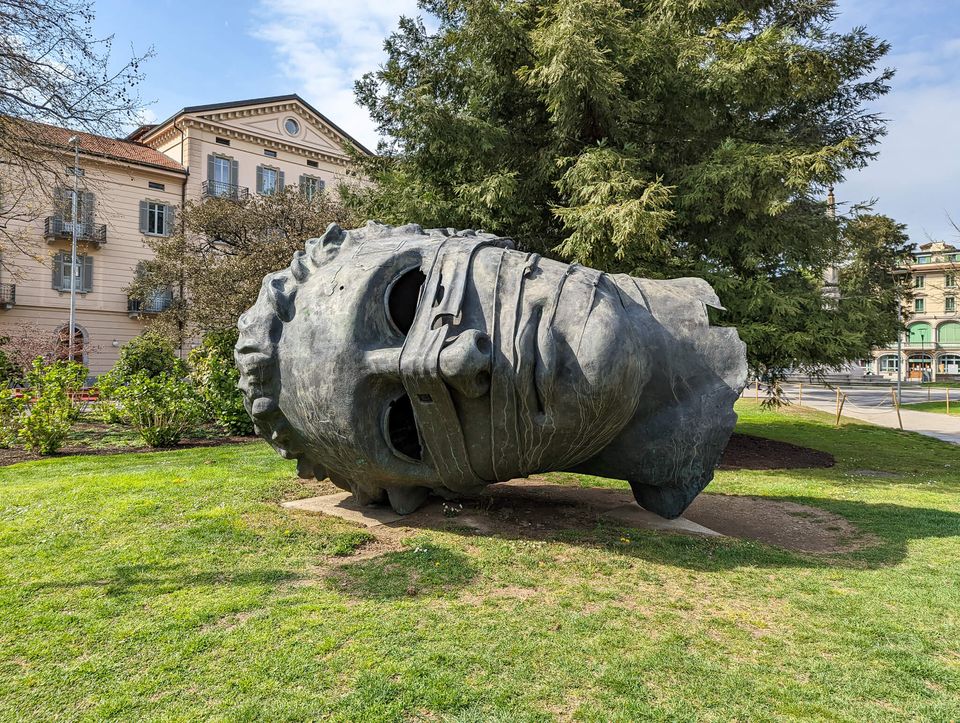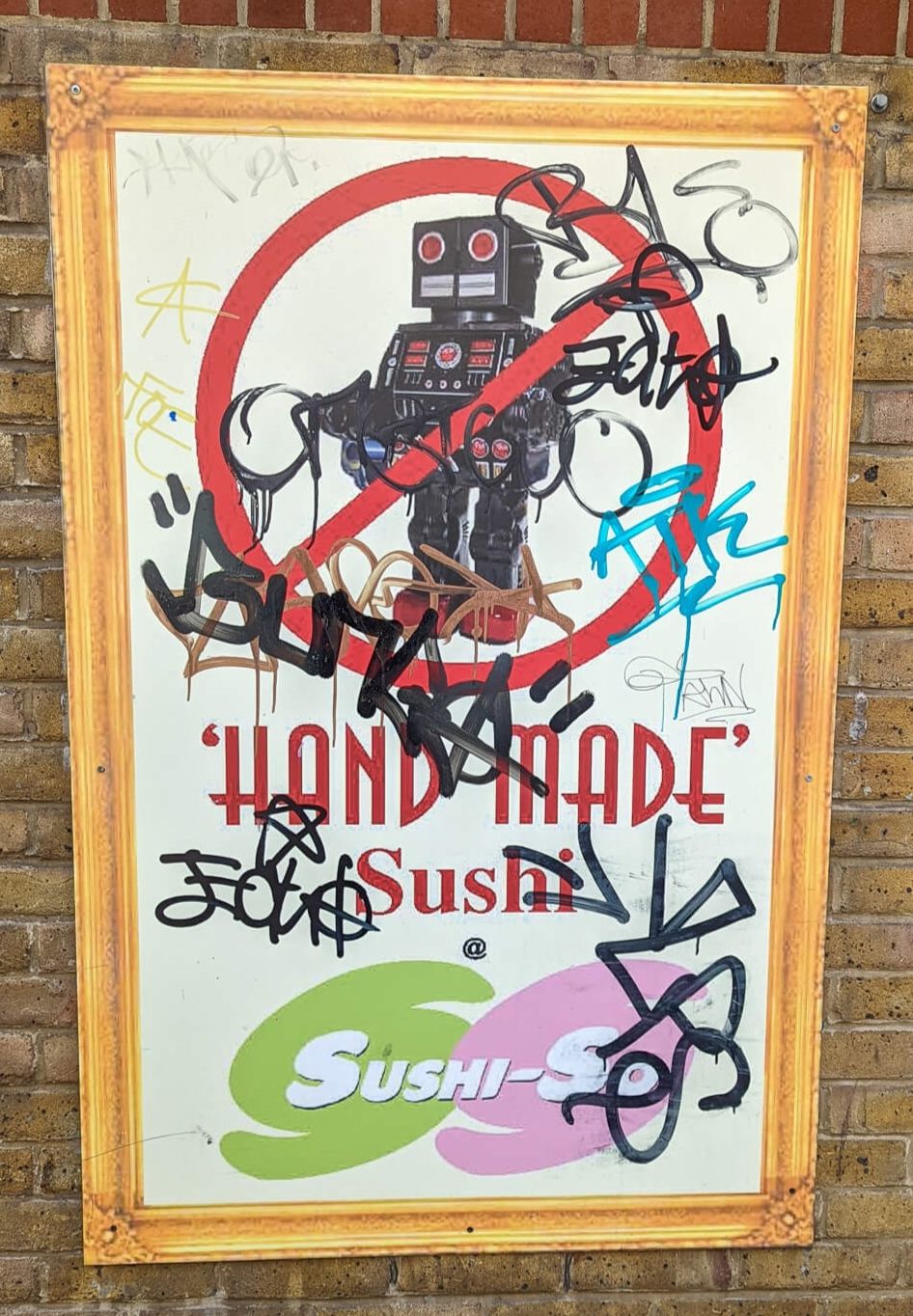What the Heck Were they Thinking? (Newsletter 049)

Greetings friends.
I'm a little tired of "Best of" awards, truth be told. In my professional life, not a week went by without some law firm being celebrated for an accolade. In-house counsel are better, but we still hand out awards like clockwork for "Best law department," "Top 30-Somethings," and "GC of the Year." There are hundreds and hundreds of them.
Now, it's not that the law firms, departments, and individual lawyers who are nominated and who win these awards aren't awesome. They usually are pretty great and deserving of recognition. The award serves as a temporary boost to the ego, provides a little thrill of recognition, and reassures you that you haven't given up a large chunk of your waking hours for nothing.
The thing is, there's not a great deal we can learn from the award itself or the award winners. The fact that a majority of votes went to person X at firm Y could mean one of several things. Maybe voting was light this year, and the marketing department did a great job getting their friends' friends to vote. Maybe the judges were lazy or incompetent. Or maybe the donation the firm made to the voting committee's favorite charity wasn't completely coincidental. But let's take even the best assumption, i.e., the winner is a great lawyer who delights their clients. OK, what does that do for me? How does it help me provide a better service?
I'll tell you what would be much more valuable to know: who are the worst lawyers and what did they do that made them stand out? Flagrant public mistakes can offer us great learning experiences. Although it's true we sometimes learn from our own mistakes, it's considerably less embarrassing to use other people's screwups for our teachable moments.
You might be surprised to hear there are almost no lists nominating "the worst lawyer of the year," or "the biggest legal screwups of 2022." Or maybe you're not surprised. Lawyers are a sue-happy group, come to think of it. Probably not a good idea to go around seeking nominations for your new "worst lawyer" list, although I bet you could get some new advertisers to buy space in your award publication.
The closest analogy I can think of are periodic lists compiled by law firms of the largest fines and settlements companies paid to resolve enforcement actions. These penalties are the result of sometimes epic misconduct and mismanagement, but it is rare for individuals to be singled out. In just the last few years, each of Airbus, Petrobas, Ericsson, and Telia coughed up more than a billion dollars in fines for paying bribes. Do you know any of the involved parties' names?
It would be really interesting to know what management was thinking in these companies. You don't get to problems that big without senior management malfeasance: either they were directly involved, or they knew about it and didn't stop it, or they didn't know but should have known. The thought process in all three cases would be fascinating to understand. Why did they make the decisions they did? Would we have been tempted to make the same decisions?
Because we should be open to continuous improvement from wherever inspiration strikes, I propose we establish an annual "What Were They Thinking?" list for counsel of companies and institutions that experience public crises. No need to crown an overall winner, and no need to pour salt on the wounds by referring to anything so rude as the "worst lawyers."
And if we're honest, we should anyway demonstrate humility when judging others. What seems like an obvious mistake after a crisis has unfolded was in all likelihood anything but clear at the time. We're talking about smart, accomplished, well-meaning people here who were doing their absolute best in difficult circumstances, not hacks or crooks.
We could use these criteria for counsel's potential inclusion on the list:
- A deliberate decision (or lack of a decision) leading to significant corporate harm. In other words, there has to be one or more avoidable moments we can second-guess.
- The harm must make its way into the public eye. Lots of bad stuff happens that we never hear about. This isn't about surfacing companies' private business.
- Legal counsel either made the decision or was closely involved with those that did and so should have been able to influence the decision.
With this in mind, I quickly came up with the following candidates:
Disney's counsel in letting the CEO say the company would explicitly fight to overturn a democratically adopted law in the State of Florida that had broad public support.
Twitter's counsel for suppressing the news about Hunter Biden's laptop two weeks before the presidential election, making it appear as if they were choosing sides in a hotly debated topic.
Boeing's counsel for allowing a circumstance to arise where safety officials say they felt their voices were overridden by business concerns.
The Motion Picture Academy's counsel on thinking that a ten-year suspension for Will Smith attending the Academy Awards was appropriate while allowing him to retain his Award.
Politics is so heated that I have great sympathy for any company that makes a misstep, egregious though it may be. Sometimes the pressure to take a stand is overwhelming. And I would bet there are a lot of companies whose safety officials feel underappreciated and underfunded. Will's slap and its consequences may not seem to reflect obviously poor decision-making to you.
So I'll offer up one more candidate for the "What were they thinking?" nominations:
Credit Suisse's counsel for their inability to control either CS's internal compliance culture or the flow of damaging information to the press. Any company can be hit by a scandal, and follow-on scandals are not that rare. After all, once authorities give you a good looking-over, they are more likely to find more troublesome things. But if your company makes global headlines month after month for a string of scandals over a multi-year period, something's gone terribly wrong.
This is a week for us to look beneath the surface more broadly, not just at corporate failures. In the Paradise Lost series, we consider circumstances when saving time does us no favors. See Some Time-Savers Make Our Lives Worse. More often than we realize, our push to save time merely results in us subtracting from our lives.

In this week's Moral Letter 097 On Our Rotten Times we discuss how each generation assumes it has a uniquely valid perspective on progress and the march of history. If we examine history with humility, though, after a short reflection we would realize we are just as flawed as those who came before us. Ironically, it is the people who are most sure they are right who are likely to cause the greatest harm to society, but it is our tragic fate that we always realize it too late.

Similarly, in Moral Letter 098 On Counting On Chance, we explore how what looks like bad luck can be turned to our advantage if we have the right mindset. Even when we've experienced significant misfortune, we have the power to not only learn from it, but to rise above our circumstances. This becomes easier when you anticipate the worst that can happen and remain confident that you will overcome.

With this in mind, we see that even among those companies that experienced dreadful events, management and employees have an opportunity to come out better and stronger than before their crises. I sincerely hope this year's "What were they thinking?" nominees have made the most from their experiences.
Be well.







Member discussion